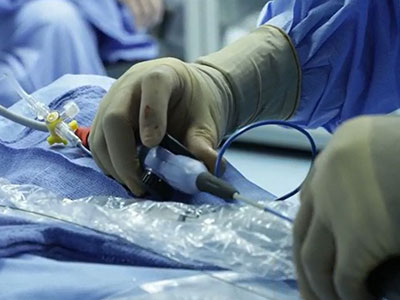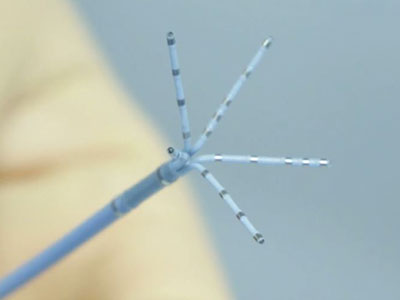Heart procedure reduces radiation exposure for AFib patients
Oct 24, 2021 TUCSON – An advanced heart procedure that significantly reduces radiation exposure for patients being treated for cardiac arrhythmia, or abnormal heartbeat, is being offered at Carondelet Hospitals.
TUCSON – An advanced heart procedure that significantly reduces radiation exposure for patients being treated for cardiac arrhythmia, or abnormal heartbeat, is being offered at Carondelet Hospitals.
Known as flouroless atrial fibrillation ablation, the procedure differs from traditional ablation methods because it does not require the use of fluoroscopy, or live X-ray, to guide the physician.
Sophisticated echocardiography imaging uses ultrasound create three-dimensional moving pictures of the inside of the patient’s heart to identify unhealthy tissue and areas producing abnormal electrical impulses causing the abnormal heartbeat.
Traditional fluoroscopy can result in relatively high radiation doses, especially for complex heart procedures which require the live x-ray over a long period of time, according to the U.S. Food & Drug Administration.
“The advantage of fluoroless atrial fibrillation ablation is that it does not expose the patient to any radiation, which makes it a safer procedure,” explained cardiologist Rohit Kedia, MD, a cardiac electrophysiologist at Carondelet St. Joseph’s and St. Mary’s Hospitals.
During the fluoroless atrial fibrillation ablation procedure, catheters are inserted into a vein in the patient’s groin while the patient is under general anesthesia, then guided up into the heart. Electromagnetic signals exchanged between the catheters and patches on the patient’s chest and back create a 3-D anatomic map of the inside of the heart, explained Dr. Kedia.
Relying on the electroanatomical mapping and intracardiac echocardiography to navigate inside the heart, physicians use heat generated by wires at the tip of a catheter to eliminate the tiny area of tissue causing the irregular heartbeat, without damaging the rest of the heart, he said.
Dr. Kedia recently performed the fluoroless atrial fibrillation ablation procedure on Wayne Martin, a 63-year-old Tucson resident who suffered from severe cardiac arrhythmia despite being on a high dose of medication designed to help maintain a regular heartbeat.
 “I was having shortness of breath and weakness,” explained Martin. “I’m a pretty rugged guy but I would have a hard time breathing just walking around the grocery store. I was getting really tired of being tired. I haven’t had any of those issues since I had the procedure with Dr. Kedia. I would recommend it for anybody experiencing what I was going through.”
“I was having shortness of breath and weakness,” explained Martin. “I’m a pretty rugged guy but I would have a hard time breathing just walking around the grocery store. I was getting really tired of being tired. I haven’t had any of those issues since I had the procedure with Dr. Kedia. I would recommend it for anybody experiencing what I was going through.”
Martin is also relieved that his procedure was performed without fluoroscopy. “That’s important,” he said. “Long-term radiation exposure is not a good thing.”
Dr. Kedia added, “One of my goals when I started out as an electrophysiologist was to cut down on the amount of radiation to patients. At Carondelet Hospitals, we have the top-of-the-line heart mapping technology and the clinical expertise needed to reduce the chance of radiation exposure to patients and make our procedures safer.”

